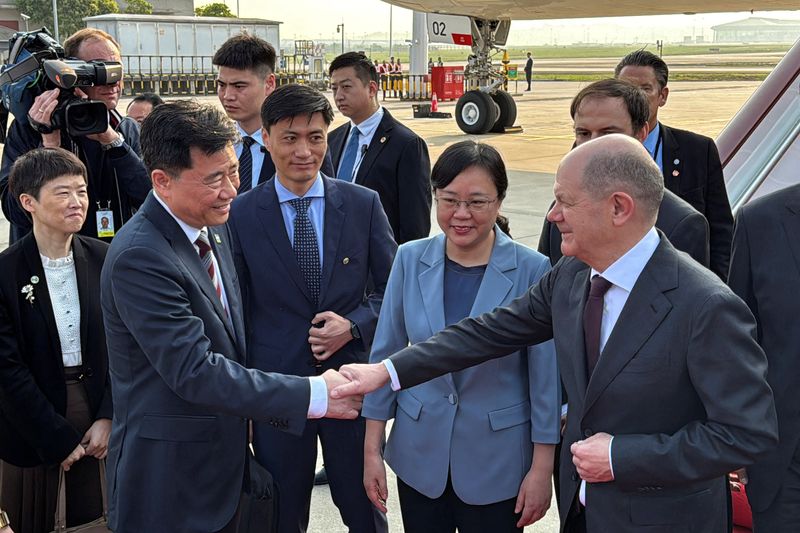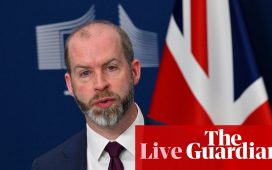By Andreas Rinke and Sarah Marsh
CHONGQING/BERLIN (Reuters) – Chancellor Olaf Scholz kicked off a three-day tour of China on Sunday to shore up ties with Germany’s top trade partner and address rifts over issues including Chinese trade practices and its support for Russia.
The chancellor’s longest visit to any state since taking office is likely to be overshadowed by Iran’s attack on Israel, and it is also being watched for how much Germany backs the European Union’s probe into Chinese state subsidies for electric vehicle makers, which has emerged as a contentious issue.
Scholz, who is travelling with several German CEOs, started his trip in the southwestern megacity of Chongqing. He will also go to Shanghai and Beijing where he is set to meet Chinese President Xi Jinping and Premier Li Qiang.
Upon arrival, Scholz condemned the Iranian strikes on Israel “in the strongest possible terms,” his spokesperson said. Scholz was kept informed of developments in the Middle East on the flight, government sources said.
German officials said Beijing could play a positive role in cooling the rapidly escalating tensions in the Middle East.
China played a mediating role between Iran and Saudi Arabia last year, and Reuters reported China had asked Iran to help rein in attacks on ships in the Red Sea by the Iran-backed Houthis, or risk harming business relations with Beijing.
Still, Berlin’s overall stance on China has become more critical since the war in Ukraine.
Last year, Germany also published its first China strategy, describing “unfair practices” and the risks to supply chains in a potential conflict over Taiwan, and urging “de-risking”. However, efforts to diversify away from China are so far patchy.
On Sunday, Scholz will visit German auto supplier Bosch’s hydrogen fuel cell plant in Chongqing, putting in the spotlight on an area of rising tensions.
The EU is carrying out several probes into whether Chinese green tech exports like battery EVs that it says have benefited from state subsidies and which could harm local producers.
Germany’s car industry fears these probes could lead to a trade war that could damage their prospects in the world’s biggest car market.

Scholz is also expected to address China’s support for Russia. German officials on Friday bluntly said Beijing’s support and exports to Russia were enabling Moscow to wage a war of aggression in Ukraine and causing a “growing loss of reputation for China” in Europe and beyond.
“It is about China not supporting Russia in waging a brutal war against its neighbor Ukraine,” Scholz wrote in a post on social media platform X on Saturday.





